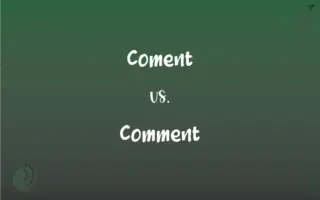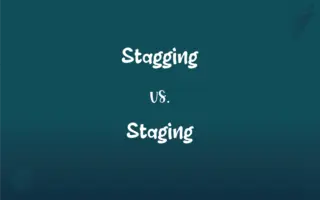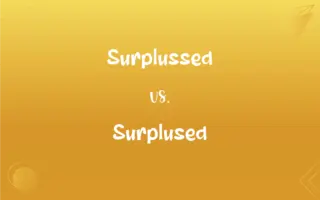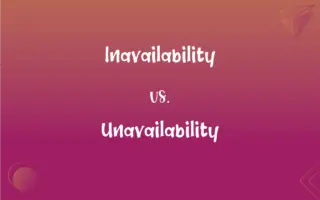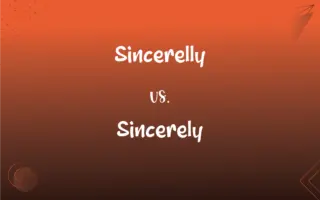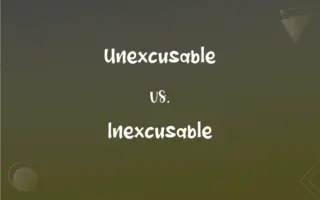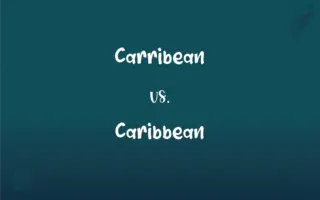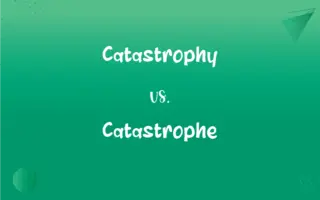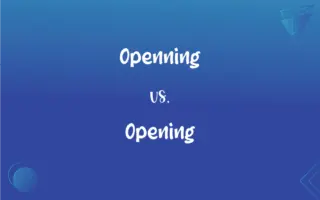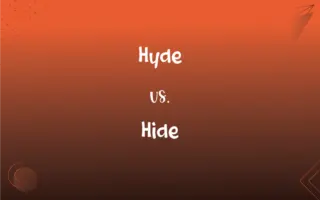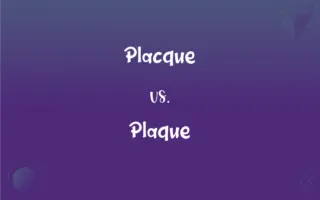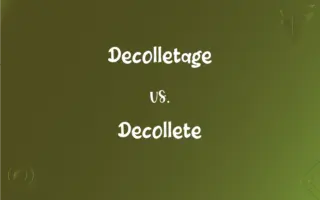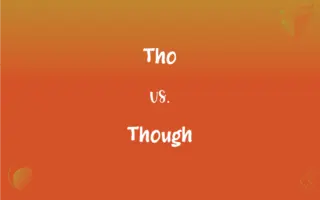Extremly vs. Extremely: Mastering the Correct Spelling
Edited by Aimie Carlson || By Janet White || Published on April 6, 2024
Extremly is an incorrect spelling; the correct spelling is extremely, which means to a very high degree or intensely.
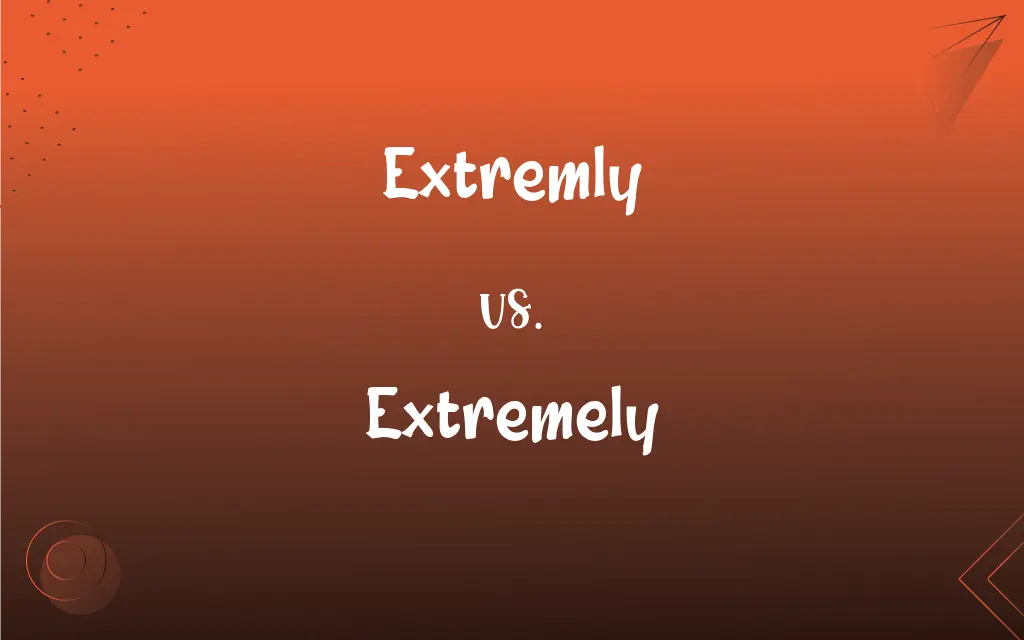
Which is correct: Extremly or Extremely
How to spell Extremely?

Extremly is Incorrect

Extremely is Correct
ADVERTISEMENT
Key Differences
Remember "extremely" has an "e" after "trem" to spell "extreme" followed by "ly."
Link "extremely" with "exceedingly" to remember the "e" in both adverbs.
Visualize "extremely" as "extra+extremely," both starting with "extre," to remember the spelling.
Think of "extremely" as combining "extreme" and "ly," emphasizing the need for an "e" before "ly."
Use the mnemonic "Every Xylophone Tune Requires Extremely Melodic Lyrics" to remember the "e" in "extremely."
ADVERTISEMENT
Correct usage of Extremely
She was extremly happy to see her friend.
She was extremely happy to see her friend.
I'm extremly sorry for the late response.
I'm extremely sorry for the late response.
It's extremly important to follow the instructions.
It's extremely important to follow the instructions.
He runs extremly fast for his age.
He runs extremely fast for his age.
The movie was extremly boring.
The movie was extremely boring.
Extremely Definitions
Extremely signifies an action or quality taken to its highest or most significant degree.
He's extremely knowledgeable about medieval history.
Extremely is used to describe something that is done in an extreme manner.
The weather was extremely cold last winter.
Extremely means to a very great degree or intensity.
She was extremely happy with the surprise gift.
Extremely applies to situations where something surpasses the usual or expected.
The car was extremely expensive, beyond what they anticipated.
Extremely is used for emphasizing the degree of something.
The instructions were extremely complicated to follow.
Most remote in any direction; outermost or farthest
The extreme edge of the field.
Extremely Sentences
The weather is extremely cold this winter.
He was extremely grateful for the help he received.
The book is extremely interesting; I couldn't put it down.
The museum is extremely popular among tourists.
The cake was extremely delicious.
She was extremely tired after the long journey.
She felt extremely excited about the upcoming trip.
The test was extremely difficult, but she managed to pass.
The music was extremely loud at the concert.
The sun was extremely bright today.
The traffic was extremely heavy this morning.
The lesson was extremely informative.
The ice cream tastes extremely good on a hot day.
He spoke extremely well at the conference.
The story was extremely sad, and it made her cry.
The puzzle was extremely challenging, but fun.
They were extremely lucky to find a parking spot.
The project requires extremely careful planning.
The room was extremely clean and well-organized.
The landscape looks extremely beautiful in the spring.
His reaction was extremely funny.
Her performance was extremely impressive.
His support has been extremely helpful.
The movie's special effects were extremely realistic.
It's extremely important to stay hydrated.
FAQs
What is the verb form of extremely?
Extremely is an adverb, so it doesn't have a verb form.
What is the pronunciation of extremely?
Extremely is pronounced /ɪkˈstriːmli/.
Why is it called extremely?
It derives from "extreme" with "ly" added to indicate an adverbial form, meaning to a very high degree.
Which conjunction is used with extremely?
Any conjunction can be used with extremely, depending on the sentence structure.
What is the plural form of extremely?
Adverbs, including extremely, do not have plural forms.
What is the root word of extremely?
The root word is "extreme."
Is extremely a noun or adjective?
Extremely is an adverb.
Which vowel is used before extremely?
Vowels are not specifically used before adverbs like extremely.
Is extremely a negative or positive word?
It's neutral; context determines its connotation.
Which preposition is used with extremely?
Prepositions are not typically associated with the use of extremely.
Which article is used with extremely?
Articles are not used with adverbs like extremely.
Is extremely an abstract noun?
No, it's not a noun; it's an adverb.
Is extremely a countable noun?
Extremely is not a noun; it's an adverb.
Which determiner is used with extremely?
Determiners are not used with adverbs like extremely.
What is the singular form of extremely?
Extremely does not have singular or plural forms; it remains the same.
Is extremely an adverb?
Yes, extremely is an adverb.
Is extremely a vowel or consonant?
The question doesn't apply; extremely is a word, not a letter.
Is the extremely term a metaphor?
Extremely itself is not a metaphor; it intensifies the degree of an adjective or another adverb.
Is the word extremely imperative?
No, extremely is not used in imperative forms; it modifies adjectives or adverbs.
What is another term for extremely?
Another term is "highly" or "exceptionally."
How many syllables are in extremely?
There are three syllables in "extremely."
How do we divide extremely into syllables?
Extremely is divided as ex-treme-ly.
What is the opposite of extremely?
The opposite could be "slightly" or "barely."
What is the first form of extremely?
Extremely does not have forms like verbs; it remains constant.
What is the third form of extremely?
Extremely does not change form; it is an adverb.
How is extremely used in a sentence?
The test was extremely difficult, more than she had anticipated.
Is extremely a collective noun?
No, it is an adverb.
What is a stressed syllable in extremely?
The stressed syllable is the second one: ex-TREME-ly.
What part of speech is extremely?
Extremely is an adverb.
What is the second form of extremely?
There is no second form; extremely is always the same.
About Author
Written by
Janet WhiteJanet White has been an esteemed writer and blogger for Difference Wiki. Holding a Master's degree in Science and Medical Journalism from the prestigious Boston University, she has consistently demonstrated her expertise and passion for her field. When she's not immersed in her work, Janet relishes her time exercising, delving into a good book, and cherishing moments with friends and family.
Edited by
Aimie CarlsonAimie Carlson, holding a master's degree in English literature, is a fervent English language enthusiast. She lends her writing talents to Difference Wiki, a prominent website that specializes in comparisons, offering readers insightful analyses that both captivate and inform.

